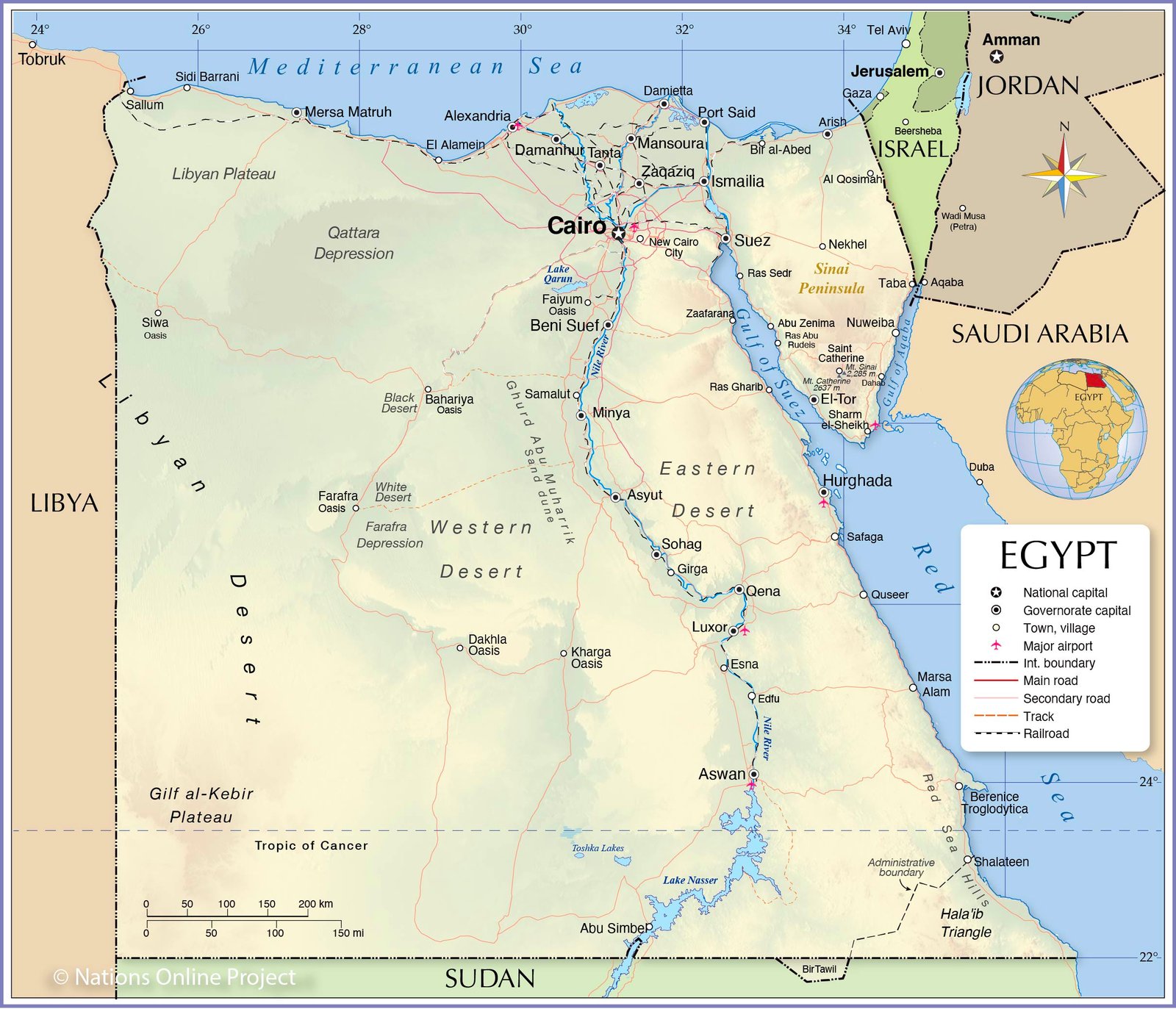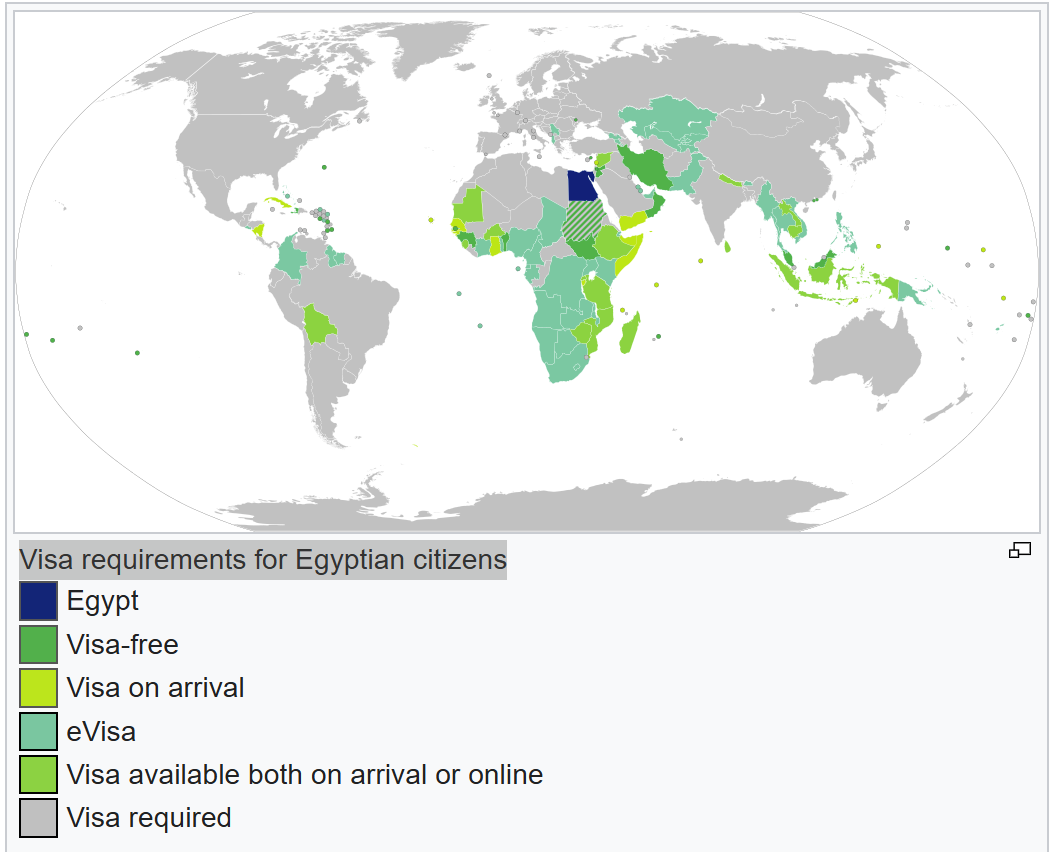How To Get Residency in Egypt: A Comprehensive Guide
Capital: Cairo
Population: 109,450,000(as of 2025, 15th)
Ethic Groups: mostly Egyptian
Area: 1,010,408 km2(30th)
Offical Language: Arabic
Currency: Egyptian pound (As of May 22, 2025, 1 EGP = 0.020 USD)
GDP per Captial: $21,668 (2025 estimated, 87th)
Human Development Index: 0.754 (100th)

Country Profile:
Egypt, situated in the northeastern region of Africa, is one of the world’s oldest civilizations. Throughout its rich history, Egypt underwent the Hellenistic, Roman, and Byzantine eras before being conquered by the Arabs in the 7th century, subsequently becoming a major center of Islamic culture.
Economically, Egypt stands as the third-largest economy in Africa and ranks 20th globally in terms of purchasing power parity.
The country’s abundant natural resources, particularly oil and natural gas, play a vital role in its economy. Additionally, the Suez Canal serves as a critical international maritime route, generating substantial revenue. Today, modern Egypt is also a key hub for the Arab film and television industry.
Visa & Immigration System:
Traditionally, Egypt has not been a country of immigration. Apart from family reunification visas and granting asylum to refugees, local authorities typically issue work visas to foreigners only under very strict conditions. Furthermore, Egyptian work visas cannot be converted into permanent residency, citizenship, or any other long-term status.
However, in recent years, in an effort to boost national economy and following the example set by Turkey, the Egyptian government has introduced and successfully implemented a series of investment immigration programs.
These programs are all priced in US dollars and require applicants to invest locally by purchasing property, making deposits, or engaging in business activities in exchange for Egyptian residency.
Broadly speaking, these programs fall into two categories:
-
A residenby by investment program with relatively lower financial requirements, and
-
A citizenship by investment program, often referred to as passport program, which require a higher level of investment and grant direct citizenship.
Residency By Investment Program:
Following a series of revisions in May 2023, Egypt’s residency by investment program currently offers two main economic pathways: real estate investment and bank deposits.
1. Real Estate Investment Option:
-
Invest $50,000 to obtain a one-year residency visa;
-
Invest $100,000 to obtain a three-year residency visa;
-
Invest $200,000 to obtain a five-year residency visa.
2. Bank Deposit Option:
-
Deposit $50,000 in an Egyptian state-owned bank to obtain a one-year residency visa;
-
Deposit $100,000 in an Egyptian state-owned bank to obtain a three-year residency visa.
It is important to note that holders of Egypt’s investment visas do not have political rights afforded to citizens, cannot apply for permanent residency or citizenship, and applicants under the real estate option must purchase properties approved by relevant government authorities.
On the upside, this residency by investment program imposes no minimum stay requirements—you are not required to reside in Egypt to maintain your visa. Furthermore, as long as the investment is maintained, visa holders can, in theory, renew their residency permits indefinitely.

Citizenship By Investment Program:
What is Citizenship By Investment Program?
Citizenship by Investment (CBI) programs, also known as the Passport Programs, are government initiatives that allow foreign nationals to obtain citizenship in a country by making a significant financial contribution or investment in that country’s economy. This process offers a legal and relatively fast route to acquiring a new nationality and passport, often within a few months, depending on the program and country.
Currently, there are ten globally stable and reputable passport programs:
- Caribbean: Saint Kitts and Nevis, Antigua and Barbuda, Grenada, Dominica, and Saint Lucia.
- Pacific: Vanuatu.
- Southeast Asia: Cambodia.
Overall, while the global Citizenship by Investment programs require significant financial investment, they offer several advantages:
1. Quick Passport Acquisition: In most CBI countries, once the investment is made, applicants can obtain a passport within 3 to 4 months, or even just a few weeks.
2. Lenient Background Checks: Although there has been increased scrutiny on background checks due to pressure from the EU and the US, compared to major countries’ green card programs, the background checks for CBI programs in smaller countries are still relatively lenient, sometimes even superficial.
3. No Residency Requirement: Almost all CBI countries have a zero-immigration-residency policy. In most cases, applicants can apply for and hold citizenship without ever having to reside in the country.
4. Broad Dependent Eligibility: Many CBI programs allow multiple generations of the primary applicant’s family, including grandparents and grandchildren, to be included regardless of age or status.
What Is Egypt’s Citizenship By Investment Program?
Since December 2019, the Egyptian Cabinet has approved a new citizenship law, amending the 1975 Nationality Law. Inspired by Turkey’s model, this legislation offers foreign investors a fast-track route to Egyptian citizenship through investment.
In 2023, the Egyptian government further revised the law, significantly reducing financial requirements of the program.
Under the updated law, Egypt’s citizenship by investment program provides four financial pathways for foreign applicants:
1. Donation Route: Applicants need to dona te $250,000 to the government treasury.
This donation can be paid in installments within one year from the application date. However, the Egyptian passport will only be issued once your full donation is completed; until then, applicants receive a local short-term residency permit.
2. Real Estate oute: Applicants must purchase Egyptian real estate or a real estate portfolio valued at a minimum of $300,000, either in their own name or through a company.
Only properties sold by state-owned companies are eligible under this option.
3. Business Route: Applicants must invest at least $350,000 in a local company and hold more than 40% ownership.
Additionally, a $100,000 donation to the Egyptian government is required.
4. Deposit Route: Applicants must place a zero-interest deposit of $500,000 with the Central Bank of Egypt (CBE), which cannot be withdrawn for three years.
For all four pathways, the investment must be maintained for a minimum of five years; failure to do so will result in revocation of citizenship.
Applicants must also satisfy basic criteria, including a clean criminal record, good health, and successful completion of Egypt’s background checks.
The government charges a processing fee of $10,000 per person for each citizenship application, applicable to both the main applicant and dependents. This program allows the main applicant’s spouse and unmarried children under 21 years old to apply jointly.
How To Apply For Egypt’s Citizenship By Investment Program?
The application process for Egypt’s citizenship by investment program can be roughly divided into four steps:
1. Submit Application: In this step, you need to choose your investment route, prepare all required documents, and either personally or through a lawyer, submit visa application in person in Cairo.
Required documents include:
-
Applicant identity documents: passports of all main and dependent applicants, four passport-sized photos, marriage certificate, birth certificates, and other documents proving relationships among the main and dependent applicants;
-
Certificate of no criminal record;
-
Medical examination certificate: must be issued by a hospital in Egypt.
All documents from outside Egypt must be notarized, and any documents not in Arabic must be translated into Arabic.
2. Background Check: After receiving your application, the Egyptian immigration authorities will conduct a background check on all main and dependent applicants.
3. Complete Investment: Once the background check, which takes about three months, is passed, you will receive a short-term residency permit valid for six months. During this period, you must transfer funds to Egypt and complete or prepare to complete your investment.
4. Obtain Passport: After completinginvestment, relevant Egyptian authorities will conduct another background check lasting about three months. Once approved, your application will be recommended to the Egyptian Prime Minister, who will sign the documents and issue the passport.
The entire process, from the date of application, typically takes about 9 to 12 months.
Dependents:
Whether it is Egypt’s residency by investment or citizenship by investment program, the main applicant’s children under 21 can join as dependents and reside in Egypt together.
Your spouse, however, must wait for two years before being eligible to obtain an Egyptian visa or citizenship.
Tax Implication:
A key deterrent to the attractiveness of Egypt’s investment immigration policy is its taxation aspect. Egypt levies an income tax as high as 22.5% and applies this to the worldwide income of its citizens.
A good news is that: Egypt has established nine tax-free zones to attract overseas capital: companies set up in these zones are exempt from corporate taxes.
Passport Power:
Egypt recognizes dual citizenship, necessitating that its citizens declare their dual status to the government.
Furthermore, Egypt entered into an E-2 treaty with the United States on June 27, 1992. As per the U.S. official statistics, a total of 32 E2 visas were issued to Egyptian citizens in the year 2020.
Egyptian passports rank 88th in the world, and passport holders can travel freely (visa-free or visa on arrival) to 50 countries and regions globally (as of May 22, 2025).

Official Links:
Egyptian Citizenship By Invstement Office: https://www.ecu.gov.eg/